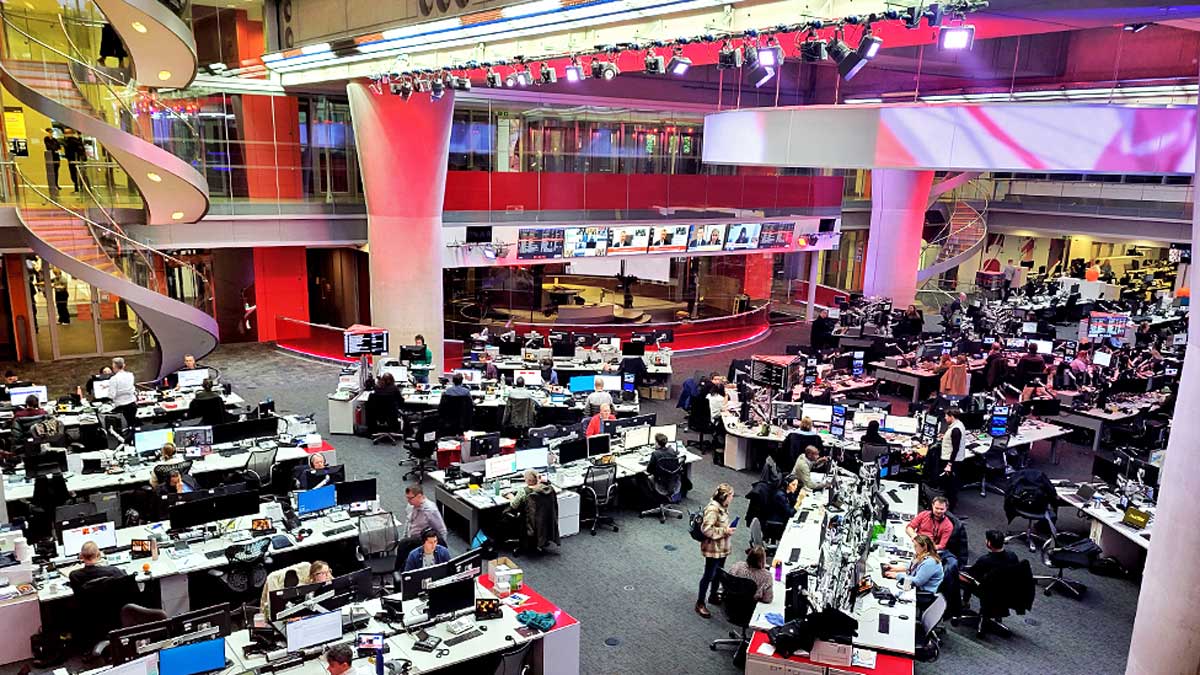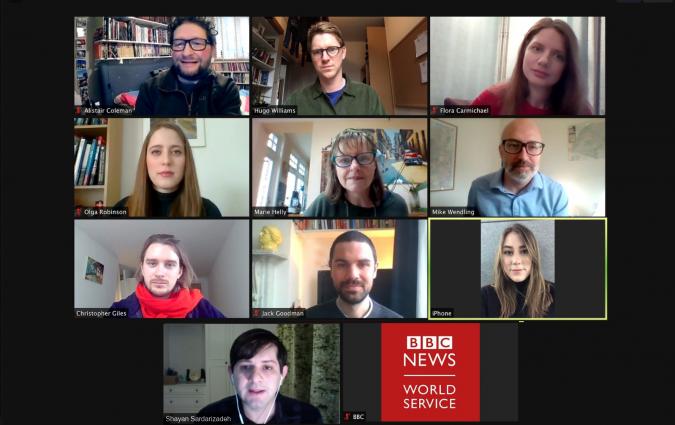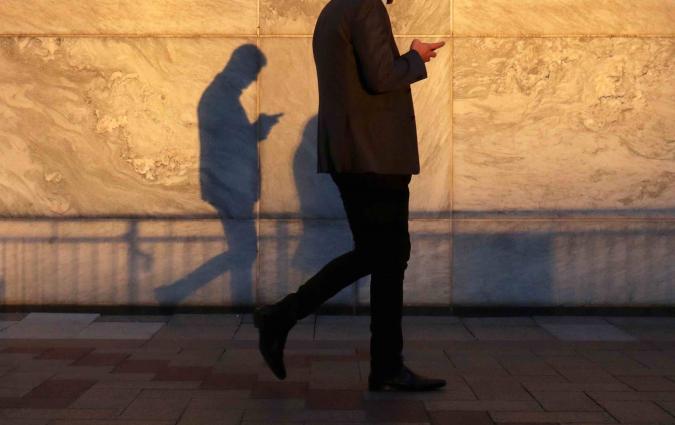In this piece
Perceptions, power, and polarisation: the political impact of UK fact-checking

Does the work of UK fact-checking organisations – like BBC Verify, Channel 4 FactCheck and FullFact – impact political behaviour? This project investigates. Picture: Supplied by BBC
In this piece
The furore over fact-checking | The UK fact-checking space | A small sample of what politicians think | Recommendations for newsroomsRecent decisions by Meta and Google have stirred debate about the role of fact-checking in combating misinformation, its alleged political biases, and its place in democratic discourse.
Fact-checking organisations in the UK work hard to uphold political accountability, but do these efforts resonate with the political elite and impact their behaviour? Or are these efforts primarily a tool to help audiences navigate a labyrinth of contestable claims and provide essential context?
Through interviews with UK politicians, strategists, and advisers spanning administrations from Tony Blair to Rishi Sunak, this fellowship project investigates whether fact-checking changes how politicians craft and deliver their messages.
The furore over fact-checking
Meta announced its decision to dismantle its professional fact-checking programme in favour of a community-driven “Notes” system on 7 January 2025. Chief executive Mark Zuckerberg cited a commitment to “free expression” as his motivation. He acknowledged that while the new system might allow harmful content to spread, it aligns with a broader philosophy of less regulated speech. This policy mirrors a similar approach taken by Elon Musk’s platform, X, and represents a significant departure from previous efforts to curb the spread of false information on social media.
Google, meanwhile, recently informed the European Union that it will not incorporate fact-checkers’ work into search results or YouTube as part of the Digital Services Act (DSA), opting instead for a cautious approach to mandated moderation.
These developments underscore the importance of examining the impact of fact-checking initiatives – not only for the integrity of information but also for public trust, political discourse, and harm reduction.
Over the past three months at the Reuters Institute, my work has focused on these questions broadly, and more particularly: does fact-checking journalism influence political behaviour in the UK?
The UK fact-checking space
The UK fact-checking space is dominated by three main players: BBC Verify (my employer), Channel 4 FactCheck, and Full Fact.
Each organisation brings a unique approach:
- BBC Verify aims to combine fact-checking with open-source journalism, providing in-depth verification across platforms.
- Channel 4 FactCheck operates as part of Channel 4 News, offering a mix of online and broadcast analysis to “test the claims of people in power.”
- Full Fact, an independent charity, actively pushes for corrections in addition to publishing fact-checks, a strategy its chief executive Chris Morris describes as “publish and act.”
These organisations share a commitment to holding politicians accountable. However, despite their growing reach, comparatively little work has been done to understand the influence fact-checking has on political discourse, especially in a UK setting.
A small sample of what politicians think
The project involved 11 semi-structured interviews with current and former UK politicians and strategists panning multiple administrations. Participants included former Cabinet Ministers, Downing Street officials and Special Advisers.
Most participants agreed to an on-the-record interview. However, four requested anonymity. To protect their identities, these participants are identified only with the following acronyms:
- MCM: May Conservative Ministry source
- JCM: Johnson Conservative Ministry source
- SSCM: Sunak Senior Cabinet Minister
- SLM: Starmer Labour Ministry source
Key findings reveal a spectrum of attitudes toward fact-checking. Some politicians viewed it as a necessary tool for accuracy, while others dismissed it as an “irritant.” For example, a former senior adviser in the Sunak government remarked:
“I wouldn’t elevate fact-checking above what think tanks or media outlets say—it’s just another element of democratic debate.”
Others acknowledged that fact-checking affects political behaviour in specific contexts. James Nation, a former Deputy Head of the Number 10 Policy Unit, admitted:
“The fact that you know you’re going to be fact-checked is forcing people to be more precise.”
However, several participants noted that fact-checking’s impact is often limited by public engagement. As Baroness Olly Grender observed:
“Fewer people consume a debunk than hear the original claim.”
This reflects a broader challenge: even when false claims are corrected, their initial spread can outweigh the corrective impact.
My interviews revealed other trends, including:
- Participants from current and more recent governments were significantly more aware of and engaged with the work of fact-checkers.
- There is evidence that politicians and strategists do adjust their behaviour in certain circumstances, particularly when reputational risk is high.
- There is a calculated framing of certain claims to prevent fact-checkers from declaring them demonstrably false. In these instances, claims may be based on incomplete data or selected assumptions.
Find the full project – Perceptions, power, and polarisation: the political impact of UK fact-checking – below for more insights on how politicians view the work of fact-checkers.
Recommendations for newsrooms
The project concludes with actionable recommendations for newsrooms to enhance fact-checking’s effectiveness:
- Pre-bunking: Anticipate and address likely misinformation ahead of key political events, such as debates or policy announcements. By priming audiences with context, fact-checkers can mitigate the spread of false claims.
- Focus on repeat offenders: Fact-checkers should highlight instances where politicians persistently repeat debunked claims, referencing findings from other reputable organisations to bolster credibility.
- Transparency: Fact-checking units should clearly show their methods, link to data sources, and promptly address any errors. Greater transparency can build trust and counter perceptions of bias.
- Improve reach and visibility: Newsrooms should integrate fact-checks into prominent programmes like BBC Question Time, using high-profile figures to present findings. Fact-checkers should also focus on issues that resonate with the public, ensuring content is accessible and engaging.
By adopting these strategies, fact-checkers can strengthen their role in promoting accountability and combating misinformation, contributing to a healthier democratic discourse.
In every email we send you'll find original reporting, evidence-based insights, online seminars and readings curated from 100s of sources - all in 5 minutes.
- Twice a week
- More than 20,000 people receive it
- Unsubscribe any time




